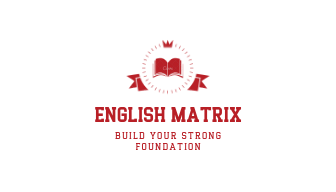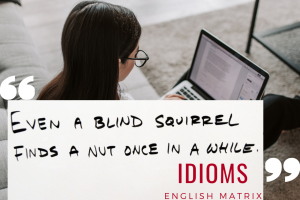Particle – Prepositional Verbs

- break in on (interrupt a conversation)
- catch up with (keep abreast)
- check up on (examine, investigate)
- come around to (convert to, for instance an opinion)
- come down to (reduce itself to one aspect, which is essential or the most important)
- come up with (contribute, bring forth, produce, for instance money, solution, ideas)
- cut down on (curtail expenses)
- drop out of (leave school)
- fill in for (do somebody else’s work on a temporary basis)
- fill in on (provide additional or missing information)
- follow up on (try to find more information about something)
- follow up with (take action about something, especially in order to reinforce the effect of a previous related action)
- get along with (have a good relationship with)
- get away with (escape blame)
- get down to (begin to pay serious attention to something)
- get through to (succeed in reaching a destination or stage; be successfully conveyed)
- get in on (get involved in an exciting or profitable activity)
- get rid of (eliminate)
- get through with (finish)
- go on to (proceed to do, tackle something after doing something else)
- hang out with (spend one’s leisure time)
- hold back from (decide not to do or say something)
- hold on to (refuse to let go of something)
- hang on to (refuse to let go of something)
- keep up with (maintain pace with)
- look back on (reconsider something past)
- look forward to (anticipate with pleasure)
- look down on (despise)
- look in on (visit somebody)
- look out for (be careful, anticipate; take care and protect the interests of somebody)
- look up to (respect)
- make up for (compensate)
- make sure of (verify)
- put up with (tolerate)
- run out of (exhaust supply)
- take care of (be responsible for)
- talk back to (answer impolitely)
- think back on (recall)
- walk out of (leave an event or a place, especially angrily and suddenly)
- walk out on (abandon)
- To be continued
Over time, in subsequent posts, I will pick up various such semantic units and discuss them in relevant contexts.
I hope the articles on phrasal verbs have proved useful and interesting to you.
If so, keep reading our blog and we promise that a great many pleasant and beneficial surprises are in store for you.
Thank you for your attention!


